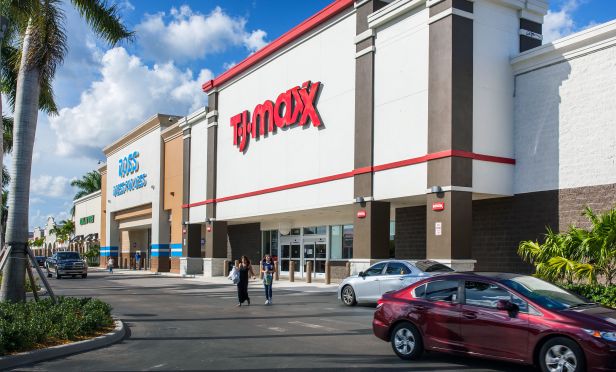
ATLANTA—Atlantic Station recently named Nick Garzia its director of leasing. Garzia, who has more than 20 years of lifestyle center leasing experience, is responsible for current retail strategy and future retail endeavors for the in-town dining and shopping destination.
In 2015, Hines acquired the 586,000-square-foot retail center that anchors the mixed-use development, which also includes three class A office towers, multifamily communities, a full-service hotel and freestanding Ikea, Target and Dillard's locations. GlobeSt.com caught up with Garzia to discuss his strategy, including the e-commerce factor.
GlobeSt.com: What do landlords look for when identifying tenants?
Garzia: In a broad sense, landlords look for tenants that are going to generate their own traffic and won't be overly reliant on everyone else's traffic. You look for something beyond just a box with stuff in it.
You want something where employees are engaged and knowledgeable. You want something that is experiential, has a good signature behind it and has a team that is fully committed to the concept.
If it's a start-up or entrepreneur, a landlord needs to roll up their sleeves and really make sure they understand it. All great retailers started with a single store somewhere, so why can't it be here and now?
GlobeSt.com: How are brick and mortars competing with e-commerce?
Garzia: E-commerce is here to stay, but I think its impact has been overstated. If you look at the annual reports of prominent chain retailers, the percentage that individual specialty stores sell via e-commerce is 15 to 20%, so a clear majority of the sales are still happening in the store.
E-commerce is just taking the catalogue and making it much more efficient. I think customers have always been smarter than retailers give them credit for. They were doing their research prior to coming in and making a purchase, but now they can do it there on mobile devices.
Also, people want unique experiences. I don't hear people saying, “You have to go to this website, it's so awesome,” but I do hear people saying, “You have to go see this store, it's amazing.”
The trend toward e-commerce says more about the time people can devote to shopping than it does about an epochal shift in how they shop. Retailers need to focus on the experience, architectural design, product assortment and all the different sensory things that go into creating a brand.

ATLANTA—Atlantic Station recently named Nick Garzia its director of leasing. Garzia, who has more than 20 years of lifestyle center leasing experience, is responsible for current retail strategy and future retail endeavors for the in-town dining and shopping destination.
In 2015, Hines acquired the 586,000-square-foot retail center that anchors the mixed-use development, which also includes three class A office towers, multifamily communities, a full-service hotel and freestanding Ikea, Target and Dillard's locations. GlobeSt.com caught up with Garzia to discuss his strategy, including the e-commerce factor.
GlobeSt.com: What do landlords look for when identifying tenants?
Garzia: In a broad sense, landlords look for tenants that are going to generate their own traffic and won't be overly reliant on everyone else's traffic. You look for something beyond just a box with stuff in it.
You want something where employees are engaged and knowledgeable. You want something that is experiential, has a good signature behind it and has a team that is fully committed to the concept.
If it's a start-up or entrepreneur, a landlord needs to roll up their sleeves and really make sure they understand it. All great retailers started with a single store somewhere, so why can't it be here and now?
GlobeSt.com: How are brick and mortars competing with e-commerce?
Garzia: E-commerce is here to stay, but I think its impact has been overstated. If you look at the annual reports of prominent chain retailers, the percentage that individual specialty stores sell via e-commerce is 15 to 20%, so a clear majority of the sales are still happening in the store.
E-commerce is just taking the catalogue and making it much more efficient. I think customers have always been smarter than retailers give them credit for. They were doing their research prior to coming in and making a purchase, but now they can do it there on mobile devices.
Also, people want unique experiences. I don't hear people saying, “You have to go to this website, it's so awesome,” but I do hear people saying, “You have to go see this store, it's amazing.”
The trend toward e-commerce says more about the time people can devote to shopping than it does about an epochal shift in how they shop. Retailers need to focus on the experience, architectural design, product assortment and all the different sensory things that go into creating a brand.
© Touchpoint Markets, All Rights Reserved. Request academic re-use from www.copyright.com. All other uses, submit a request to [email protected]. For more inforrmation visit Asset & Logo Licensing.






